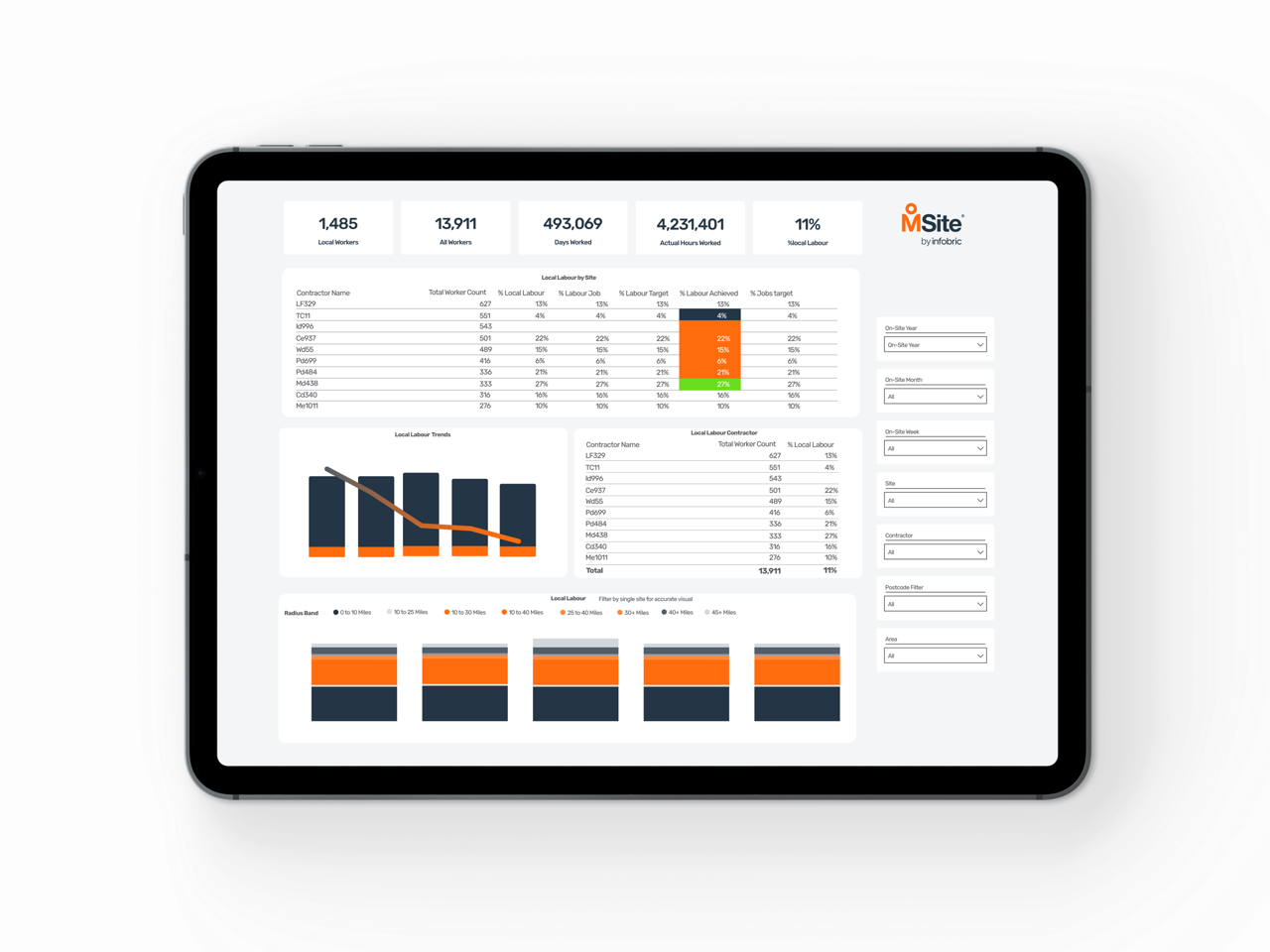
Social value in construction: where are we now?
There are some opportunities within industry that are arguably bigger than the product of work itself. For the construction industry, social value is one of these opportunities. It’s not new, but it's always evolving, so where are we in a nutshell?
The best place to start is defining social value, as views on this still differ.
Using Social Value UK’s guidance, it is a broader understanding of value moving beyond using money as the main indicator, instead putting the emphasis on engaging people to understand the impact of decisions on their lives.
Alternatively, looking at the UK Government’s definition in relation to the Public Services (Social Value) Act, it requires people who commission public services to think about how they can also secure wider social, economic and environmental benefits.
To us, social value is simply being responsible for the betterment of the world around us. But how is that achieved?
Examples of Social Value
As social value is based on securing benefits for those connected to a business’ environment, there is a never-ending list of examples. However, to name a few that routinely enter conversations on the topic, there is:
Volunteering
Sponsorship
Job Creation
Up-skill & Mentoring
Local Spend
For the construction industry, it’s important that social value connects with wider issues. For example, workforce diversity, the skills gap and mental health can all be improved through associated social value initiatives. Action should always be aimed at the local community, with a view to improving the lives of individuals, which will in turn help to address national trends.
Evidence of social value
As well as clients and frameworks embedding social value requirements into their opportunities and requirements, so that the wider project goals are defined at the earliest stage possible, regular research and monitoring of social value in construction is helping to paint a picture.
Released in 2023, the Social Value in Construction Benchmarking Report analysed almost 500 construction projects completed in 2022 and revealed £1.08bn of social value was generated from contracts worth £4.57bn. More recently, The True State of Social Value in Construction white paper found that 77% of construction professionals feel social value is taken seriously within the industry, but 89% feel that their organisation could do better with social value. So, there is room for improvement still.
Challenges with social value
There are various different processes, procedures and platforms being used to measure social value, which can sometimes make it unclear what the true value is that is being generated. Different approaches also make it difficult to compare performance from company to company. Meanwhile, using local labour as an example, different definitions are used which makes it challenging to maintain a competitive, high standard across the industry.
Organisations are still struggling to gather data in a timely manner and create clear reports. This can lead to passionate social value professionals spending more time manually organising data instead of influencing a positive impact in communities.
Though it is now uncommon, there are still some that see social value as a box ticking exercise. Hopefully this mindset changes, whether it's due to external pressure to do better or an individual motivation to contribute more. The best approach to social value is making it central to project planning, so the impact is considered, tangible and long-lasting.
How we’re helping to capture and report on social value
Despite social value being a key driver in the construction industry now, many contractors still don’t have access to the data they want, when they need it, which can make reporting difficult. This is where we step in.
Legitimate and validated workforce social value data can be sourced from our sustainability module, increasing automation, strengthening contract compliance and helping contractors to win future bids. The main workforce data we can capture and report on in real time includes diversity and locality, as well as apprenticeships and training. So, where are we? We’re in the thick of it and we’re creating data driven insight on one of the construction industry’s biggest drivers. Our mission is to remove manual data collection, so organisations can focus on what they want to achieve and how to make a truly positive impact on the world around them.

Read more about our social value-tailored sustainability module here.
Part of the Infobric Group, MSite has operated in the construction industry for more than 20 years with values based on embracing challenge, achieving together and doing the right thing. With an end-to-end workforce management solution ranging from pre-site registration and inductions through to access control, site briefings and workforce management, MSite is trusted by leading names such as Balfour Beatty, Morgan Sindall, Sisk and BAM across all construction levels and sectors including commercial, housebuilding, infrastructure, refit and utilities.
For more information about our work with Galliford Try, visit https://www.msite.com/case-studies
For more information, please contact Matthew Santos at Cartwright Communications via: matthew@cartwrightcommunications.co.uk or call us on 0115 853 2110.
About MSite:
Part of the Infobric Group, MSite has operated in the construction industry for more than 20 years with values based on embracing challenge, achieving together and doing the right thing. With an end-to-end workforce management solution ranging from pre-site registration and inductions through to access control, site briefings and workforce management, MSite is trusted by leading names such as Balfour Beatty, Morgan Sindall, Sisk and BAM across all construction levels and sectors including commercial, housebuilding, infrastructure, refit and utilities.
For more information visit www.msite.com
Discover more MSite and Galliford Try success stories
Click for more information about our work with Galliford Try’s on their Monk Bridge development project.
